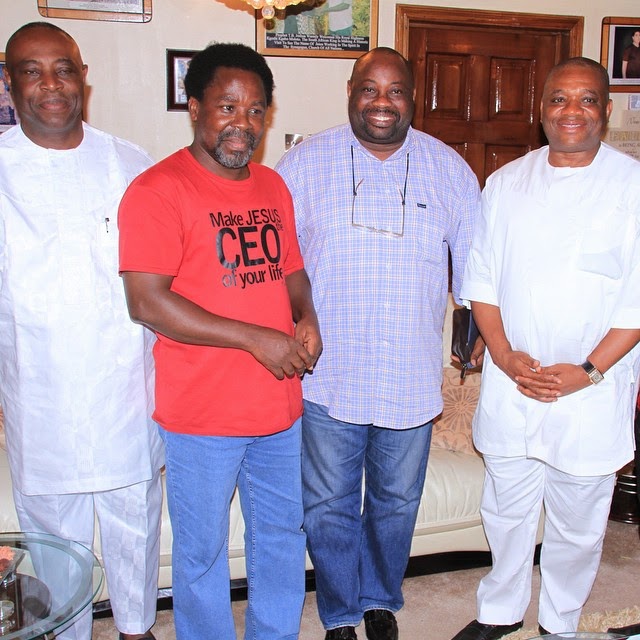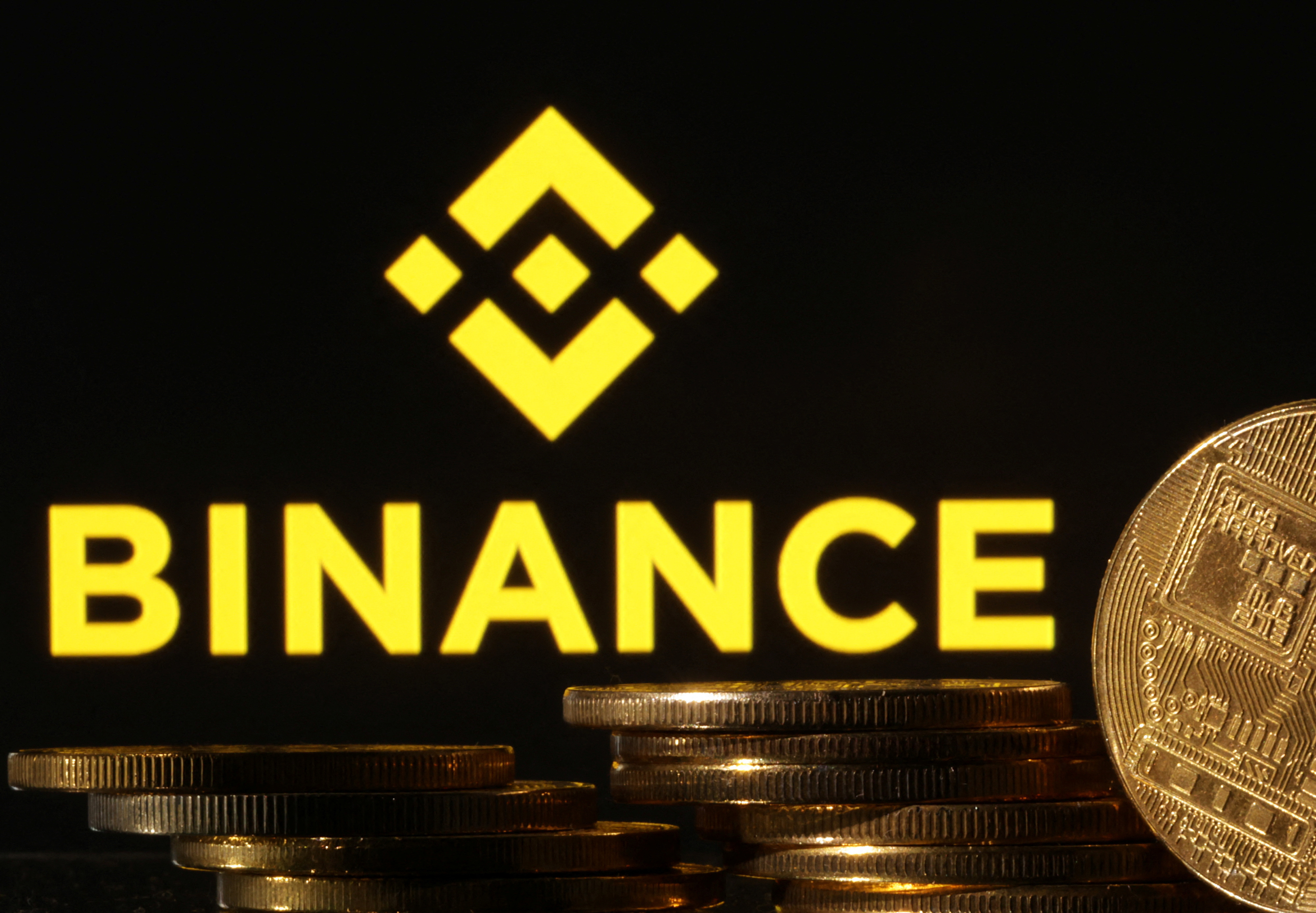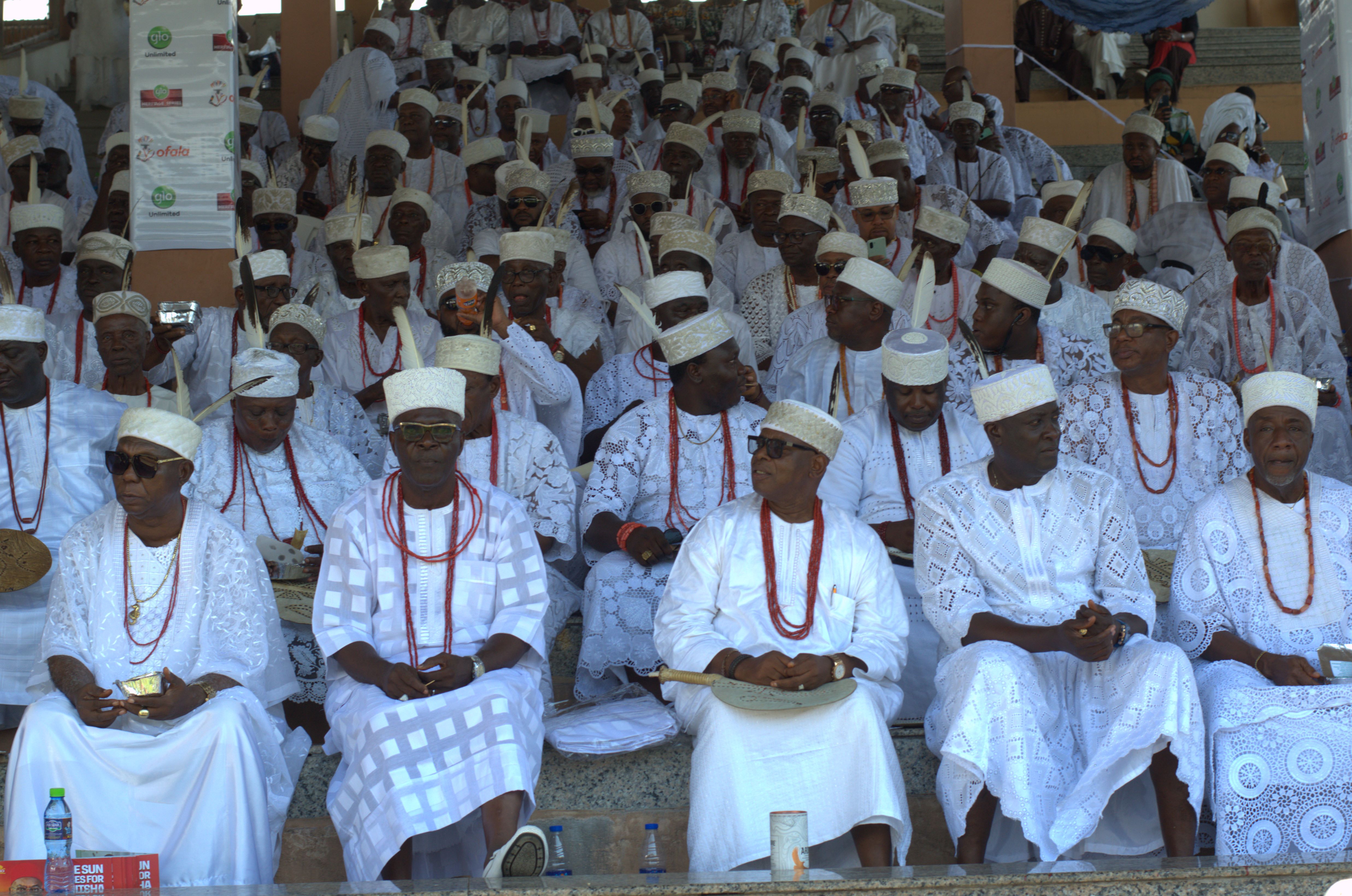By Dele Momodu
Fellow Nigerians, let me say how worried I’m about our dear beloved country Nigeria. Yes. I’m troubled because of how much we have allowed politics and politicking to turn our land into a playground of beasts and vampires. It is sad, very sad.
Just yesterday, an old friend woke me up from my deep sleep. He is no other than the former Governor of Abia State, Dr Orji Uzor Kalu. I had tried to reach him desperately in the last few weeks after reading all kinds of reports online about him. The one that alarmed me the most was a purported ‘Breaking News” that said Orji has just died after an unsuccessful operation in Germany. I was so rattled that I quickly put a call through to my dear friend and former colleague at Concord Newspapers of Nigeria, Eric Osagie, now the Managing Director of The Sun Newspapers. As soon as he picked his phone, I tried to check if I would hear, or feel, any wailing, or gnashing, of teeth in the background but my friend sounded as boisterous as ever. Ever since I knew Eric, I have never seen or heard him in a dull moment.
Eric screamed my moniker as always “Bob Deeeee!” I retaliated, “Ericooo!” and I went straight to the reason I was calling him.” Where is Orji Kalu?” I asked, hurriedly. “Your friend is in his house in Abuja,” Eric responded, matter-of-factly. Somehow, I thought he was just being clever and tactful and didn’t want to break the sad news, just yet. I wasn’t going to allow Eric do that to me. The reporter in me took the upper hand and I thundered, “I just read that Orji is dead!” But Eric, in his characteristic confidence mode, responded authoritatively. “Bob Dee, don’t mind them, “your friend is in his house in Abuja, please call him.” Wow, thank God, I sighed and simmered. I called but got no response from my friend of over 27 years.
No matter the situation, my friends are always my friends. Business or politics should never separate friends. Orji was already a successful businessman when I met him around 1990. I used to call him “the Aba Trader” then and he changed my nickname from Bob Dee to Don Dee. He used to pick me up, every now and then to visit his various sites and properties in Lagos and I was quite impressed about his business acumen and vision. I loved to gist with him, as he had incredible information on everything and everyone. One of the most fascinating stories I savoured endlessly from him was that of the coup that almost toppled General Ibrahim Babangida from the seat of power at Dodan Barracks. Orji is an extremely affable man whose wealth of friends, from North to South, and East to West, is remarkable and commendable. I wish every Nigeria was like members of their generation who saw Nigeria as one nation and not a country of fracticidal fractional nationalities.

When I was in exile in England, Orji contacted me regularly whenever he breezed into London and he always invited me to his beautiful home in North Finchley. We had fun visiting the best restaurants and we were so close then and remain so now. I will always recall his visit to our former home, on Romford Road in East London, when my wife and I had the naming ceremony of our second son, Enitanyole, in July 1996. Also present was Senator Bola Ahmed Tinubu. Unfortunately, I have not been able to locate most of the photographs taken on that special occasion, but we still have that of Tinubu and myself.
When Ovation took off full blast, we did an exclusive interview with Orji Kalu at home in London, titled “Aba Trader Eyes the Government House.” It was the first time Orji revealed that he was nursing the ambition to go into politics and contest the gubernatorial election in his home State of Abia, in South East Nigeria. I was excited by the story which was lavishly garnished with beautiful pictures of his London home. Though I had my doubts about his ability to take on and dislodge the firmly rooted professional politicians in Nigeria, I was nonetheless happy that successful managers of men and resources were getting into politics instead of abandoning governance in the hands of semi-literates, mediocres and never-do-wells.
My only worry at the time was the risk of duelling with political sharks and alligators who were ready to tear everyone and everything into shreds if it threatened their entrenched interests. I felt that Orji might end up a veritable victim of their customary shenanigans. Orji soon started his campaign and I monitored him from a distance. His raw courage always marked him out and I assumed his humongous business conglomerate was the source of his confidence and suavity. He contested and won the Governorship race and I was very elated. We met a few times whenever he was in his Lagos home and I relished our breakfast meetings at his home in Victoria Island. He had bright ideas about how to transform Aba from a rural setting to a cosmopolitan society. I noticed in his first term that he embarked on an aggressive modernisation of roads which was hailed in many newspaper reports which, I believe gave him the opportunity to win a second term, despite his running battle with President Olusegun Obasanjo. The only time I visited Abia State was when I was made a Chief by HRH Eze Dr Ngozi Israel Ibekwe, the traditional Ruler of Etiti Mgboko Umuanunu Ancient Kingdom. Unless I am doing a story, or I am expressly invited for some activity, function or even visit, it is not my style to bother my friends who are in positions of power. I believe that they have enough on their plate and that I should not add to their problems or distract them from their serious work of nation building.
I had no means of assessing or ascertaining how well he did as Governor, but he seemed very popular from the way he was handed a second term by his people. At some point, he even nursed Presidential ambition. I will not be surprised if he still does because I know he is passionate about Nigeria and feels that we have so far been short-changed by the quality of leaders that we have had. He remains resolute and firm in the belief that he still has a lot to offer the country. Orji was one of the most vociferous critics of the Obasanjo regime. He must be commended for surviving the blistering Hurricane OBJ that swept away several Governors of that incredible era. Since he left power, his critics have attacked him too endlessly and he’s been dragged before the anti-corruption agency, EFCC, accused of pilfering some of the resources meant for developing his State. The latest controversy has now led to the rumour of his death.
Well, Orji woke me up from bed yesterday morning. “Don Deee, how are you?” Then he went into the rumour of his death. He said he’s happy that he survived his operations that lasted many hours. He wondered why some people wanted him dead after serving his State and country meritoriously. He reminded me of how long we’ve known each other and recalled how he had made his billions via his SLOK GROUP, long before he went into politics.
He was very excited to chat with me just like old times and as we usually do whenever we have the opportunity to interact. He said he was returning to Germany to recuperate properly and fully and I wished him a safe trip. It is always a delight chatting with a man who has some of the hottest gist about men and women of power. His tentacles and reach also go beyond Nigeria.
Orji is not the only butt of jokes and ridiculous rumours in this season of political giddiness. I have had to practically engage in hot verbal exchanges with supposed educated and intelligent Nigerians over the cloning or body double speculation about our President Muhammadu Buhari. I sat recently with a Senator at the Transcorp Hilton Hotel, Abuja who insisted that Buhari is no longer on this planet and he’s been replaced by a nebulous Jubril from Sudan. My God, what manner of country is this, I soliloquised. The thought that any rational or reasonable person could contemplate that such far-fetched subterfuge and con could be perpetrated by any group of Nigerians with the collaboration of foreigners, especially the English, just makes the mind boggle. It is for example utterly ridiculous and sheer madness to ascribe to the Vice President, Prof. Yemi Osinbajo – a cerebral, discerning man of God, a Professor of Law and the immediate beneficiary of any unfortunate accident to the President – any role in such a farcical debacle. Indeed, it is such a crying shame that supposedly brilliant, intelligent and wise men and women would even deign to condescend to join the cacophony of noise and excitement about the existence of such a dastardly plot. For me, this is a distraction that we can least afford when there are important matters to engage us as a nation particularly as we draw near elections which may turn out to be the making, breaking or otherwise of our great country.
I have met Buhari at close range on at least four occasions since 2011, including engaging him all alone in a room in Aso Rock in 2015. As far as I am concerned, he remained the same person now as he was then. He may be affected by the aging process and ill-health, but that happens to us all. It does not make us cloned or a body double or doppelganger of a Sudanese man. How can anyone want to brainwash Nigerians like common idiots? The fact people disagree politically is no reason to manufacture such malicious, irresponsible and fallacious tales about anyone least of all the President of our country.
All our political gladiators must purge themselves of this poisonous bile. At the same time, I have a generous advice for Buhari and his handlers, in particular. They should resist the temptation to play politics of coercion. While I agree that there is plenty of fake news going around which is a mere part of the internet phenomenon, not many of it is hate speech, but mere irresponsible, spiteful or just jocular people who do not know any better. Only God gives power. To label rational, but dissenting speech as fake news just heats up the polity and clearly degrades us and our democracy. Dissent and criticism are the hallmarks of true freedom and the ability to tolerate such critique is the difference between celebrated statesmen and despised autocrats, dictators and tyrants. Some of the moves of certain government officials and agencies in recent times have been interpreted as a sign of panic and desperation. Blocking and obstructing opposition on all fronts may actually make certain candidates more popular. We have recent history to refer to in this regard. A word is enough for the wise.
As we approach 2019, another year of elections in Nigeria, the unification, security and economic well-being of our countrymen and women should be our priority. It is not how long we rule or reign but how well that is important and vital.
God bless Nigeria.

 News6 years ago
News6 years ago
 Featured7 years ago
Featured7 years ago
 Boss Picks6 years ago
Boss Picks6 years ago
 Headline6 years ago
Headline6 years ago
 Headline6 years ago
Headline6 years ago
 Headline6 years ago
Headline6 years ago
 Headline6 years ago
Headline6 years ago
 Headline6 years ago
Headline6 years ago














